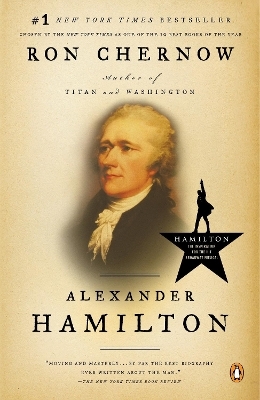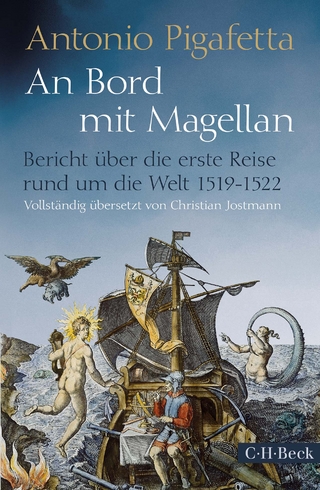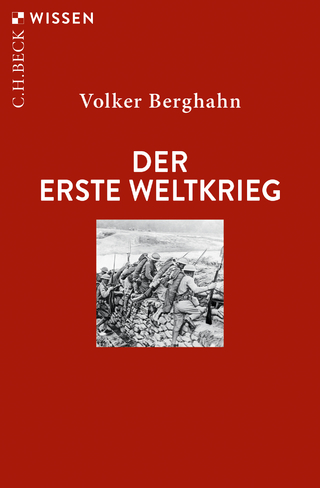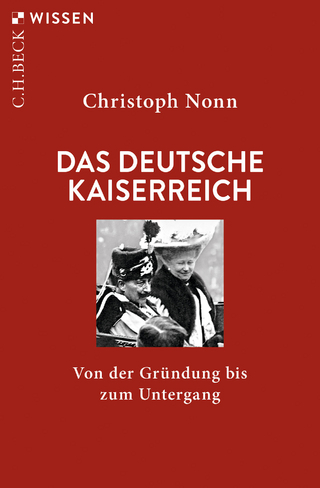
Alexander Hamilton
Penguin USA (Verlag)
978-0-14-303475-9 (ISBN)
Pulitzer Prize-winning author Ron Chernow presents a landmark biography of Alexander Hamilton, the Founding Father who galvanized, inspired, scandalized, and shaped the newborn nation.
In the first full-length biography of Alexander Hamilton in decades, Ron Chernow tells the riveting story of a man who overcame all odds to shape, inspire, and scandalize the newborn America. According to historian Joseph Ellis, Alexander Hamilton is "a robust full-length portrait, in my view the best ever written, of the most brilliant, charismatic and dangerous founder of them all."
Few figures in American history have been more hotly debated or more grossly misunderstood than Alexander Hamilton. Chernow's biography gives Hamilton his due and sets the record straight, deftly illustrating that the political and economic greatness of today's America is the result of Hamilton's countless sacrifices to champion ideas that were often wildly disputed during his time. "To repudiate his legacy," Chernow writes, "is, in many ways, to repudiate the modern world." Chernow here recounts Hamilton's turbulent life: an illegitimate, largely self-taught orphan from the Caribbean, he came out of nowhere to take America by storm, rising to become George Washington's aide-de-camp in the Continental Army, coauthoring The Federalist Papers, founding the Bank of New York, leading the Federalist Party, and becoming the first Treasury Secretary of the United States.Historians have long told the story of America's birth as the triumph of Jefferson's democratic ideals over the aristocratic intentions of Hamilton. Chernow presents an entirely different man, whose legendary ambitions were motivated not merely by self-interest but by passionate patriotism and a stubborn will to build the foundations of American prosperity and power. His is a Hamilton far more human than we've encountered before-from his shame about his birth to his fiery aspirations, from his intimate relationships with childhood friends to his titanic feuds with Jefferson, Madison, Adams, Monroe, and Burr, and from his highly public affair with Maria Reynolds to his loving marriage to his loyal wife Eliza. And never before has there been a more vivid account of Hamilton's famous and mysterious death in a duel with Aaron Burr in July of 1804.
Chernow's biography is not just a portrait of Hamilton, but the story of America's birth seen through its most central figure. At a critical time to look back to our roots, Alexander Hamilton will remind readers of the purpose of our institutions and our heritage as Americans.
Ron Chernow ist einer der erfolgreichsten Sachbuchautoren und Biographen der Vereinigten Staaten. Seine Bücher wurden mit dem "National Book Award", dem "Ambassador Award" und dem Eccle-Preis als bestem Wirtschaftsbuch ausgezeichnet. Außerdem wurden sie von der American Library Association in die Liste der besten Sachbücher aufgenommen. Die "New York Times" bezeichnete Chernow als den "elegantesten Architekten monumentaler Geschichten seit Jahrzehnten" und nahm seine Rockefeller-Biographie in die Liste "Wichtige Bücher des Jahres" 2000 auf.
Author's Note
Prologue: The Oldest Revolutionary War Widow
One: The Castaways
Two: Hurricane
Three: The Collegian
Four: The Pen and the Sword
Five: The Little Lion
Six: A Frenzy of Valor
Seven: The Lovesick Colonel
Eight: Glory
Nine: Raging Billows
Ten: A Grave, Silent, Strange Sort of Animal
Eleven: Ghosts
Twelve: August and Respectable Assembly
Thirteen: Publius
Fourteen: Putting the Machine in Motion
Fifteen: Villainous Business
Sixteen: Dr. Pangloss
Seventeen: The First Town in America
Eighteen: Of Avarice and Enterprise
Nineteen: City of the Future
Twenty: Corrupt Squadrons
Twenty-One: Exposure
Twenty-Two: Stabbed in the Dark
Twenty-Three: Citizen Genet
Twenty-Four: A Disagreeable Trade
Twenty-Five: Seas of Blood
Twenty-Six: The Wicked Insurgents of the West
Twenty-Seven: Sugar Plums and Toys
Twenty-Eight: Spare Cassius
Twenty-Nine: The Man in the Glass Bubble
Thirty: Flying Too Near the Sun
Thirty-One: An Instrument of Hell
Thirty-Two: Reign of Witches
Thirty-Three: Works Godly and Ungodly
Thirty-Four: In an Evil Hour
Thirty-Five: Gusts of Passion
Thirty-Six: In a Very Belligerent Humor
Thirty-Seven: Deadlock
Thirty-Eight: A World Full of Folly
Thirty-Nine: Pamphlet Wars
Forty: The Price of Truth
Forty-One: A Despicable Opinion
Forty-Two: Fatal Errand
Forty-Three: The Melting Scene
Epilogue: Eliza
Acknowledgments
Notes
Bibliography
Selected Books, Pamphlets, and Dissertations
Selected Articles
Index
Nobody has captured Hamilton better than Chernow
- The New York Times Book Review
On the night of April 18, 1775, 800 British troops marched out of Boston to capture Samuel Adams and John Hancock and seize a stockpile of patriot munitions in Concord, Massachusetts. As they passed Lexington, they encountered a motley battalion of militia farmers known as Minutemen, and in the ensuing exchange of gunfire the British killed 8 colonists and then 2 more in Concord. As the redcoats retreated helter-skelter to Boston, they were riddled by sniper fire that erupted from behind hedges, stone walls, and fences, leaving a bloody trail of 273 British casualties versus 95 dead or wounded for the patriots. The news reached New York within four days and a mood of insurrection promptly overtook the city. People gathered at taverns and street corners to ponder events while Tories quaked. The newly emboldened Sons of Liberty streamed down to the East River docks, pilfered ships bound for British troops in Boston, then emptied the city hall arsenal of its muskets, bayonets, and cartridge boxes, grabbing a thousand weapons in all. Armed with this cache, volunteer militia companies sprang up overnight. However much the British might deride these ragtag citizen-soldiers, they conducted their business seriously. Inflamed by the astonishing news from Massachusetts, Alexander Hamilton, then a student at King's College (later Columbia University), was that singular intellectual who picked up a musket as fast as a pen. Nicholas Fish recalled that "immediately after the Battle of Lexington, Hamilton attached himself to one of the uniform companies of militia then forming for the defence of the country by the patriotic young men of this city under the command of Captain Fleming." Fish and Robert Troup, both classmates of Hamilton, were among the earnest cadre of King's College volunteers who drilled before classes each morning in the churchyard of nearby St. Paul's Chapel. The fledgling volunteer company was named the Hearts of Oak. The young recruits marched briskly past tombstones with the motto of "Liberty or Death" stitched across their round leather caps. On short, snug green jackets they also sported, for good measure, red tin hearts that announced "God and our Right." Hamilton approached this daily routine with the same perfectionist ardor that he exhibited in his studies. Troup stressed the "military spirit" infused into Hamilton and noted that he was "constant in his attendance and very ambitious of improvement." Never one to fumble an opportunity, Hamilton embarked on a comprehensive military education. With his absorbent mind, he mastered infantry drills, pored over volumes on military tactics and learned the rudiments of gunnery and pyrotechnics from a veteran bombardier. There was a particular doggedness about this young man, as if he were already in training for something far beyond lowly infantry duty. On April 24, a huge throng of patriots massed in front of city hall. While radicals grew giddy with excitement, many terrified Tory merchants began to book passage for England. The next day, an anonymous handbill blamed Myles Cooper, the Tory president of King's College, and four other "obnoxious gentlemen" for patriotic deaths in Massachusetts and said the moment had passed for symbolic gestures. "The injury you have done to your country cannot admit of reparation," these five loyalists were warned. "Fly for your lives or anticipate your doom by becoming your own executioners." A defiant Myles Cooper stuck to his post. After a demonstration on the night of May 10, hundreds of protesters, armed with clubs and heated by a heady brew of political rhetoric and strong drink, descended on King's College, ready to inflict rough justice on Myles Cooper. Hercules Mulligan recalled that Cooper "was a Tory and an obnoxious man and the mob went to the college with the intention of tarring and feathering him or riding him upon a rail." Nicholas Ogden, a King's alumnus, saw the angry mob swar
| Zusatzinfo | illustrations |
|---|---|
| Verlagsort | New York, NY |
| Sprache | englisch |
| Maße | 150 x 231 mm |
| Gewicht | 998 g |
| Themenwelt | Literatur ► Biografien / Erfahrungsberichte |
| Sachbuch/Ratgeber ► Geschichte / Politik ► Neuzeit bis 1918 | |
| Sozialwissenschaften ► Politik / Verwaltung | |
| Schlagworte | Alexander Hamilton |
| ISBN-10 | 0-14-303475-8 / 0143034758 |
| ISBN-13 | 978-0-14-303475-9 / 9780143034759 |
| Zustand | Neuware |
| Informationen gemäß Produktsicherheitsverordnung (GPSR) | |
| Haben Sie eine Frage zum Produkt? |
aus dem Bereich


